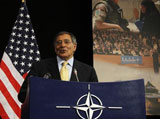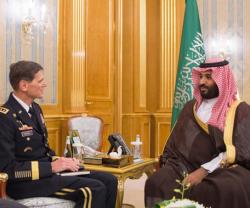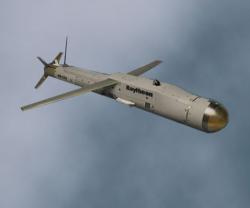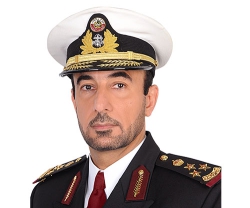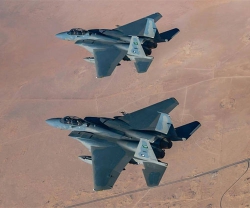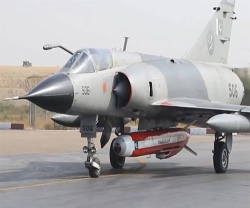Panetta: The U.S. Can No Longer Afford NATO Shortfalls
07.10.2011 North America
The U.S. Defense Chief warned NATO allies that they can no longer depend on the United States to make up for the type of military shortfalls witnessed in the Libyan and Afghan wars.
With the U.S. military facing its own major budget cuts, Defense Secretary Leon Panetta called on European and Canadian allies to work closely to pool resources at a time of austerity biting on both sides of the Atlantic.
“As for the United States, many might assume that the United States defense budget is so large it can absorb and cover alliance shortcomings - but make no mistake about it, we are facing dramatic cuts with real implications for alliance capability,” he said in a speech in Brussels.
Panetta delivered his warning before talks with NATO counterparts, centered on the missions in Libya and Afghanistan as well as the weaknesses the alliance experienced in the conflicts.
Although U.S. defense spending far exceeds European budgets, Panetta said American military leaders were facing $450 billion in cuts over 10 years, which he called tough but “manageable.”
But if the U.S. Congress fails to tackle the country’s deficit this year, the Pentagon “could face additional cuts in defense ... that would be devastating to our national security and to yours as well.”
The cuts contemplated by the Pentagon would reduce the size of the force and curtail some weapons programs, but the gargantuan U.S. defense budget - at nearly $700 billion - still dwarfs that of the 27 other NATO members combined.
NATO Defense Ministers agreed to focus on multinational cooperation to make better use of resources and the alliance will identify projects at a summit in Chicago next year, said NATO Secretary General Anders Fogh Rasmussen.
U.S. officials have long urged European allies to shoulder more of the burden of the alliance. Panetta stressed that a new era of austerity would require member states to coordinate budget cuts to ease the impact on NATO.
“We cannot afford for countries to make decisions about force reductions in a vacuum, leaving neighbors and allies in the dark,” Panetta said at an event organized by the think tank Carnegie Europe.
“With the fall of the Qaddafi regime, our nations saw an example of why NATO matters, and why it remains indispensable to confronting the security challenges of today,” he said.
In the Libya air war, NATO proved it could make moves swiftly, effectively, and with Europeans - instead of Americans - playing the lead role in a major operation, he said.
But the Libyan and Afghan conflicts exposed worrisome gaps in alliance capabilities, including a shortage of drones, refueling tanker aircraft, helicopters, munitions and targeting specialists, he said.
Panetta later announced a deal with Spanish Prime Minister Jose Luis Rodriguez Zapatero in which Spain will host four U.S. ships armed with interceptors to bolster’s NATO’s planned missile shield. (AFP; Photo: Reuters)
With the U.S. military facing its own major budget cuts, Defense Secretary Leon Panetta called on European and Canadian allies to work closely to pool resources at a time of austerity biting on both sides of the Atlantic.
“As for the United States, many might assume that the United States defense budget is so large it can absorb and cover alliance shortcomings - but make no mistake about it, we are facing dramatic cuts with real implications for alliance capability,” he said in a speech in Brussels.
Panetta delivered his warning before talks with NATO counterparts, centered on the missions in Libya and Afghanistan as well as the weaknesses the alliance experienced in the conflicts.
Although U.S. defense spending far exceeds European budgets, Panetta said American military leaders were facing $450 billion in cuts over 10 years, which he called tough but “manageable.”
But if the U.S. Congress fails to tackle the country’s deficit this year, the Pentagon “could face additional cuts in defense ... that would be devastating to our national security and to yours as well.”
The cuts contemplated by the Pentagon would reduce the size of the force and curtail some weapons programs, but the gargantuan U.S. defense budget - at nearly $700 billion - still dwarfs that of the 27 other NATO members combined.
NATO Defense Ministers agreed to focus on multinational cooperation to make better use of resources and the alliance will identify projects at a summit in Chicago next year, said NATO Secretary General Anders Fogh Rasmussen.
U.S. officials have long urged European allies to shoulder more of the burden of the alliance. Panetta stressed that a new era of austerity would require member states to coordinate budget cuts to ease the impact on NATO.
“We cannot afford for countries to make decisions about force reductions in a vacuum, leaving neighbors and allies in the dark,” Panetta said at an event organized by the think tank Carnegie Europe.
“With the fall of the Qaddafi regime, our nations saw an example of why NATO matters, and why it remains indispensable to confronting the security challenges of today,” he said.
In the Libya air war, NATO proved it could make moves swiftly, effectively, and with Europeans - instead of Americans - playing the lead role in a major operation, he said.
But the Libyan and Afghan conflicts exposed worrisome gaps in alliance capabilities, including a shortage of drones, refueling tanker aircraft, helicopters, munitions and targeting specialists, he said.
Panetta later announced a deal with Spanish Prime Minister Jose Luis Rodriguez Zapatero in which Spain will host four U.S. ships armed with interceptors to bolster’s NATO’s planned missile shield. (AFP; Photo: Reuters)
Latest news
Latest events
Doha International Maritime Defence Exhibition & Conference (DIMDEX 2026)
19 - 22 Jan 2026Doha - QatarUMEX – SimTEX
20 - 22 Jan 2026ADNEC Centre Abu Dhabi, - United Arab EmiratesWorld Defense Show (WDS) 2026
08 - 12 Feb 2026Riyadh - Saudi ArabiaSAHA EXPO International Defence & Aerospace Exhibition
05 - 09 May 2026İstanbul Expo Center - Turkey

